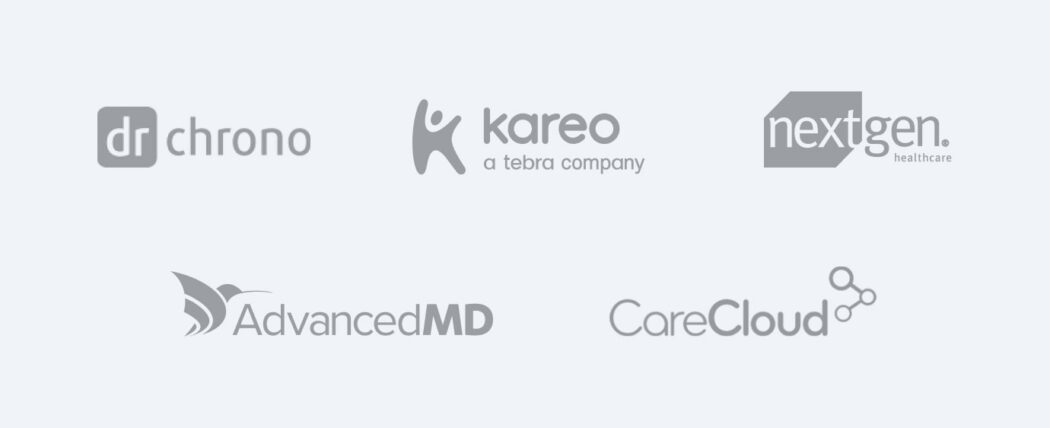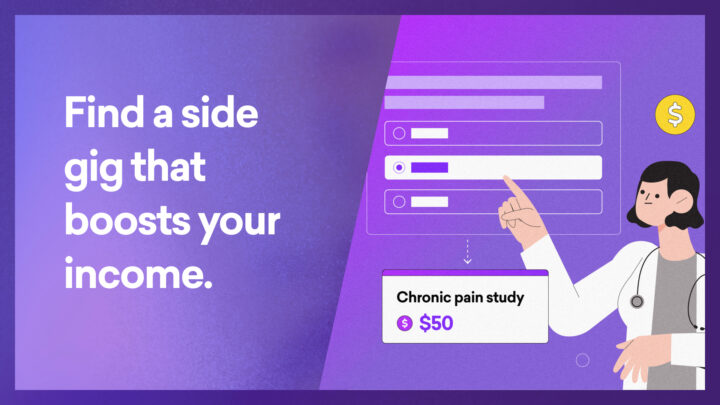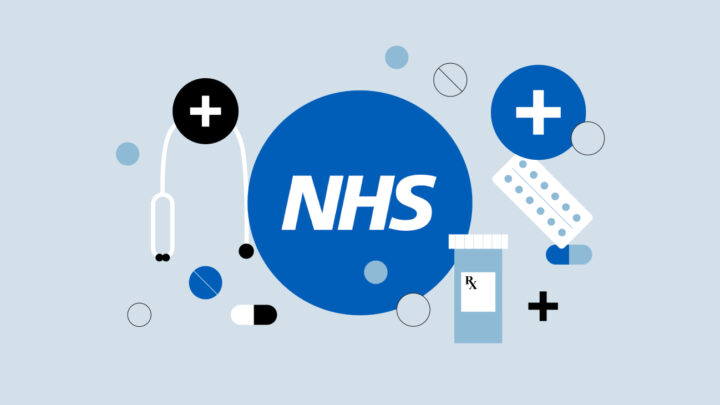
If you run a practice you probably use a practice management software or are considering getting one. Practice management softwares are centralized tools that help to manage all aspects of a practice operation. In this article we delve more into the importance of these tools, how to select a suitable product for your clinic and also share some of the top practice management software options that are available.
What is the purpose of practice management software?
Let’s level set. A practice management software is a system that helps medical offices organize and manage day-to-day operations. An effective practice management software can take care of tasks such as appointment scheduling, billing, claims processing, patient engagement, and reporting.
There are several types of practice management software for physician facilities available. It’s best to consider your clinic’s needs when choosing a suitable medical practice software. Most require some integration with other solutions for better advantage and seamless operations.

The power of practice management software
The best practice management software can really transform a practice’s productivity and organizational process. They help to keep all patient data in one place and also streamline workflow processes. Providers can worry less about administrative tasks and rely on technology to improve their productivity.
Improved time management is another benefit. The time spent on patient registration, appointment scheduling, and billing processes can be reduced significantly when you use a practice management software. Administrative tasks like scheduling, billing, and insurance verifications can be automated, saving administrative staff a lot of time.
In a recent Sermo poll, an Obstetrics and Gynecology physician had to say this to say about management software’s impact on time saving, “Being an obstetrician, a lot of time is spent in the hospital caring for laboring patients. I used to lug paper charts with me in a suitcase, or have hours of test results and messages to do once my call shift was over. Now, I can check and record test results, notify patients, call in prescriptions, answer messages, all on a computer. So a lot more meaningful use of my downtime.”
Best practice management software also improves communication. These softwares are great for notifying patients about upcoming appointments, events, and for follow-up. Pre-program it and it does the job.
Another key benefit of a practice management system is efficient reporting and accounting. Many have billing and claim processing features that can make this workflow easier to maintain and track. Also, with a management software, one can easily access reports and analytics that can be used to study trends and improve productivity.
Practice management software ensures compliance. Most practice management systems are compliant with Health Insurance Portability and Accountability Act (HIPAA) laws and regulation. Hence, they help the practice keep patient data safe and secure.
Lastly, using a practice management software can significantly reduce the chances of human error in administrative tasks like data entry, appointment scheduling, and transferring of records. These softwares are able to spot errors, highlight them and make auto-updates so correct and clear patient data is always transmitted.

How to choose medical practice management software
As earlier mentioned, there are so many practice management softwares available, including some that are more tailored for doctors – we’ll call these doctors practice management software. As a gastroenterologist from Italy said in a recent Sermo poll- “There are many products on the market and they must be chosen according to your needs. However, they are tools that have become indispensable for clinical practice and healthcare management”.
Here is a list of things you can consider when selecting a medical practice management software for your clinic.
1. User friendliness
It’s important to choose a management software that is easy to use not just for you but for your staff. The software should make workload easier and not more complex. In a recent Sermo poll, 37% of physicians indicated that transferring of data/EHR was the biggest challenge their practice faces when it comes to implementing practice management software and 51% of physicians in the same poll indicated they look out for an easy to use interface when choosing a software. Tasks like data entry, transfer of patient records and appointment scheduling should be easy.
If it’s possible to get training for all staff to onboard them to the new software, that can be a major plus.
2. Key features and functionalities
The overarching aim of getting a practice management software is to improve workflow and productivity. Hence it is important to select a software that offers features and functionalities your practice really needs to boost productivity.
Within a Sermo community post, 61% of physicians indicated that managing patient data/EHR was the most important feature to them in management software. Most management softwares have attractive features such as comprehensive scheduling, EHR functionality, automated reminders, billing and coding assistance and payment management. Some features are more robust in some softwares than others. Choose the software with the most important functionalities for your practice.
3. Affordability
Cost is a very important factor. For most tools, one has to pay for a license and perhaps there may be other associated running costs. Do not overlook all these costs. Put all these into considerations and choose the most cost-effective option for your practice.
4. Scalability and integration
Consider the growth and future of your practice when choosing a healthcare practice management software. As your practice grows, you want to ensure your management software is able to handle the increase in data and other operational processes that come with the growth. It is also important to ensure you can still access support as your practice grows.
Another important factor one must consider is how well the software integrates with other softwares your practice is currently using and perhaps how well it integrates with any partner companies you may have. A well integrated solution makes everyone’s job easier.
5. Customer support
Customer support for your practice management software can make a difference in continuing to use the product and employee satisfaction with it. Before proceeding with a software, check the accessibility and terms of customer support. One may need it if you encounter any technical challenges along the way.
6. Data safety and security
When choosing a practice management software, HIPAA compliance is non-negotiable. The confidentiality of patient data is very important and if compromised, this can affect the reputation of your practice negatively. Ensure that the software is safe and secure enough to handle and transmit patient data.
The best practice management software for your organization
Choosing the best practice management software to support your clinic is very important. Let’s take a look at some of the top practice management softwares out there.
DrChrono is a versatile integrated healthcare practice management software with an efficient patient portal. It is popular for its user-friendliness and is a suitable option for small and large health facilities.
Kareo is a unique practice management software best suited for small-sized clinics. It has excellent billing services which remain its most attractive feature. With the Kareo app, clinics can facilitate their billing and payment processes faster.
AdvancedMD is another excellent practice management software with automated features that make workflow seamless.
CareCloud practice management software is a well-organized and easy-to-use system that makes operations and workflows easier to manage and track.
NextGen Healthcare management software is great for both small and large healthcare facilities. It is also reasonably priced and easy to use for daily administrative tasks.

What to consider when implementing practice management software
Even after you’ve made a choice on the best practice management software, the job isn’t over. Implementation is just as important and involves strategic planning to ensure success. You need to train your staff on the software and make sure there’s a solid change management plan in place. So, what should you consider for implementation?
1. Staff training: After purchasing your software, ensure you invest time and resources in training your staff. The software may have the best features, but if your staff can’t use it effectively, it won’t be of much help. Consider setting up workshops and tutorials for your staff.
2. Change management: Implementing new software may mean you will have to change some of your clinic’s procedures. Be prepared for these changes and ensure you communicate them effectively to your staff.
3. Consider hiring an expert: You might also want to consider hiring an expert to help you with the transition. They can help to ensure a smooth transition and solve any challenges that may come up during the transition.
4. Consistent evaluation: After implementing your new medical practice software, you should consistently evaluate its effectiveness. This can help you to notice any flaws early enough and work on them before they escalate.

The influence on medical practices
The influence of the best practice management software cannot be underestimated. The impact of these systems on the healthcare industry has been significant. These softwares have redefined the way practices operate and significantly improved the level of patient care.
They have made administrative tasks like medical billing, scheduling, and insurance verification much easier. It has also improved patient engagement and allowed healthcare providers to focus more on patient care than administrative work. It’s not just the doctors who benefit from these softwares but also the other medical staff including nurses, administrators, and the billing department.
These tools have also made healthcare more accessible. These softwares often come with patient portals where patients can easily book appointments, view their health records, and communicate with their healthcare providers. This has significantly improved the patient experience and made healthcare more patient-centric.

Looking into the future
Looking into the future, the role of the practice management software in healthcare cannot be underestimated. As healthcare becomes more complex, so will the demand for efficient and effective practice management solutions. The best technology will continue to play a critical role in the healthcare industry.
Firstly, as telemedicine becomes more popular, the demand for healthcare practice management software that can seamlessly integrate with telemedicine platforms will increase. Providers will need a platform where they can manage both in-person and virtual visits efficiently.
Secondly, as the healthcare industry becomes more data-driven, the demand for practice management solutions with robust reporting and analytics tools will increase. Providers will need a tool that can help them analyze their data, understand trends, and make informed decisions.
Lastly, as patient expectations continue to evolve, the demand for a practice management software for physician offices that can offer a superior patient experience will increase. Providers will need a platform where patients can easily book appointments, communicate with their providers, view their health records, and make payments.
The best practice management software is no longer a luxury but a necessity for any healthcare practice. Therefore, providers should invest in a system that is reliable, efficient, and can meet their practice’s unique needs.
In conclusion, the implementation of the best practice management software is a significant step in improving your operations, increasing patient satisfaction, and ensuring growth. As the healthcare landscape continues to evolve, so should your technology infrastructure. Be sure to continually evaluate your technology and make necessary improvements to ensure that it continues to meet your company’s needs and the changing healthcare trends. You just need to find the one that fits your practice best. Always remember that the ultimate goal is to enhance patient care and improve your practice’s efficiency. Have more questions? Join Sermo, and learn from other colleagues about the best management software to use for your practice.





